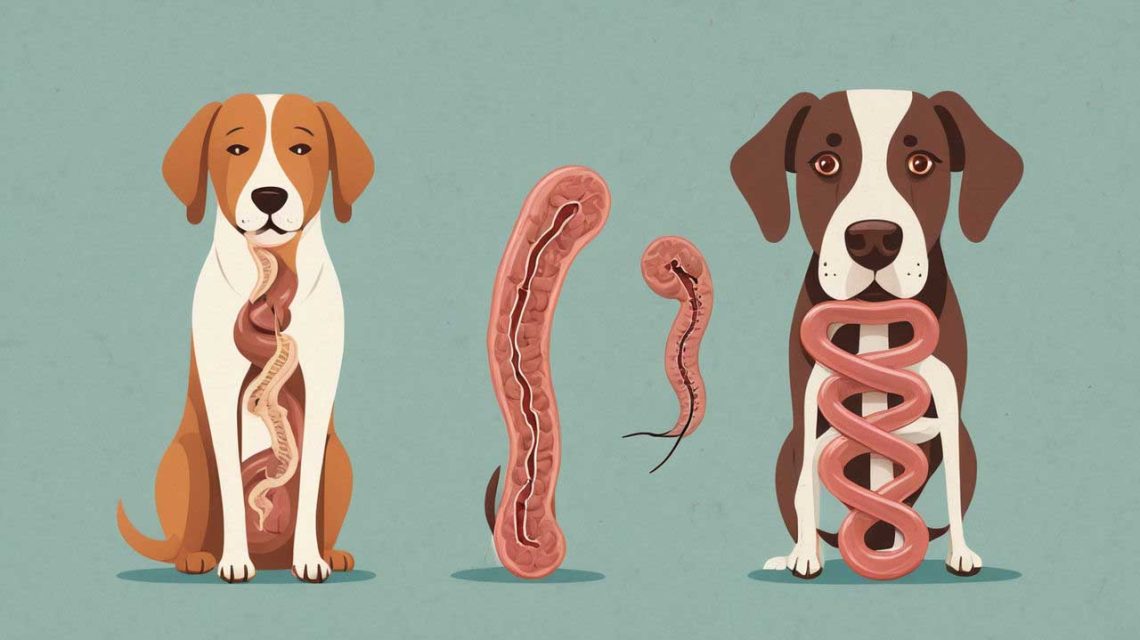Dog Worming : Essential Tips for Keeping Your Pet Healthy and Worm-Free
Worm infestations in dogs are a common issue that many pet owners face. These parasites, while small, can cause significant health problems if left untreated. From roundworms and hookworms to tapeworms and whipworms, these parasites can infect your dog’s digestive system, leading to discomfort, illness, and even more severe complications if not addressed in time. That’s why dog worming is an essential part of your pet’s healthcare routine.
In this article, we’ll cover the most common types of worms that affect dogs, the best worming treatments, and tips for preventing future infestations. By staying informed and proactive, you can keep your dog healthy, happy, and worm-free.
Why Worming Your Dog Is Important
Worms can affect dogs of all ages and breeds, but puppies and older dogs are particularly vulnerable. These parasites live in your dog’s intestines, feeding on nutrients that your pet needs to stay healthy. In severe cases, worms can cause malnutrition, weight loss, anemia, and digestive problems. Moreover, some worms, such as roundworms and hookworms, can be passed from dogs to humans, posing a health risk to your family.
That’s why dog worming is critical—not only for your dog’s well-being but also for protecting your household. Regular worming treatments help eliminate existing infestations and prevent future ones.
Common Types of Worms in Dogs
Before choosing the right dog worming treatment, it’s important to understand the different types of worms that can infect your pet. Each type of worm requires a specific treatment plan, so identifying the symptoms is key to quick intervention.
1. Roundworms
Roundworms are one of the most common intestinal parasites in dogs. Puppies are often born with roundworms, which can be passed from their mother. These worms can cause bloating, diarrhea, and malnutrition if left untreated.
- Symptoms: Bloated belly, vomiting, diarrhea, weight loss.
2. Hookworms
Hookworms attach themselves to the lining of a dog’s intestines and feed on blood. This can lead to serious issues like anemia, especially in young puppies. Hookworm larvae can also penetrate human skin, making them a risk to people as well.
- Symptoms: Pale gums, lethargy, weight loss, bloody stools.
3. Tapeworms
Tapeworms are long, flat worms that dogs typically get from swallowing infected fleas. They attach to the dog’s intestines and can cause weight loss, diarrhea, and irritation around the anus.
- Symptoms: Scooting, visible tapeworm segments in stools, weight loss.
4. Whipworms
Whipworms are smaller parasites that live in a dog’s large intestine. They cause chronic inflammation and irritation, leading to more severe gastrointestinal issues.
- Symptoms: Diarrhea (sometimes with blood), weight loss, and dehydration.
Knowing these common worm types and their symptoms can help you take quick action when needed.

Best Dog Worming Treatments
There are several effective dog worming treatments available, each designed to target specific types of worms. The best treatment for your dog will depend on the type of infestation they have. Here are some of the top options:
1. Drontal Dog Wormer
Drontal is one of the most popular broad-spectrum wormers available. It targets roundworms, tapeworms, and hookworms, making it a great all-in-one solution for dogs of all ages. Drontal comes in both tablet and flavored chew forms, so it’s easy to administer.
- Key Benefits:
- Kills multiple types of intestinal worms.
- Available in chewable and tablet form.
- Works within 24 hours of treatment.
2. Panacur C Canine Dewormer
Panacur C is a well-known dewormer that is particularly effective against roundworms, hookworms, and whipworms. It’s commonly used for puppies and pregnant dogs, as it’s safe and gentle on their systems.
- Key Benefits:
- Treats roundworms, hookworms, whipworms, and some tapeworms.
- Safe for use in puppies and pregnant dogs.
- Easy to mix with food.
3. Bayer Quad Dewormer
The Bayer Quad Dewormer is a broad-spectrum solution that targets four types of worms: roundworms, hookworms, tapeworms, and whipworms. It’s a fast-acting option that starts killing worms within hours of administration.
- Key Benefits:
- Treats multiple types of worms.
- Easy-to-administer chewable tablet.
- Fast-acting formula with minimal side effects.
4. Interceptor Plus
Interceptor Plus is a monthly chewable that not only prevents heartworms but also treats and controls intestinal worms such as hookworms, roundworms, whipworms, and tapeworms. This dual-purpose treatment is convenient for pet owners looking to protect against both heartworms and intestinal worms.
- Key Benefits:
- Prevents heartworms and controls multiple intestinal worms.
- Monthly chewable tablet that dogs enjoy.
- Ideal for year-round prevention.
How to Choose the Right Dog Worming Treatment
Choosing the best dog worming treatment depends on several factors, including your dog’s age, weight, and lifestyle. Here’s how to determine which treatment is best for your pet:
- Consult Your Veterinarian: Always consult your vet before starting any worming treatment. They can perform a fecal test to identify the type of worms your dog has and recommend the best course of action.
- Consider Your Dog’s Lifestyle: Dogs that spend more time outdoors or have regular contact with other animals are at a higher risk of worm infestations. A broad-spectrum wormer like Drontal or Bayer Quad Dewormer may be the best option for these dogs.
- Puppies and Pregnant Dogs: Puppies are more prone to roundworm infestations, and pregnant dogs can pass worms to their puppies. In these cases, a gentle wormer like Panacur C is ideal.
- Frequency of Use: Some treatments, like Interceptor Plus, offer monthly protection, while others are used on an as-needed basis. If you’re looking for a simple, once-a-month option, choose a dewormer that also protects against heartworms and other parasites.
Preventing Worms in Dogs: Best Practices
While treating worms is important, preventing future infestations is equally crucial. Here are some tips for preventing worms in dogs:
- Regular Vet Visits: Routine vet visits and fecal exams can help detect worms early before they cause serious health issues. Ask your vet about a regular worming schedule.
- Flea Control: Since tapeworms are transmitted by fleas, keeping your dog on a flea prevention program is essential. Use flea preventatives such as Frontline Plus or NexGard to minimize the risk.
- Clean Up After Your Dog: Pick up your dog’s waste immediately, especially in public areas, to prevent the spread of worm eggs in the environment.
- Avoid Raw Meat: Avoid feeding your dog raw or undercooked meat, as it can carry parasites like tapeworms.
- Good Hygiene: Practice good hygiene by washing your hands after handling your dog’s waste, toys, or food dishes, and ensure that children wash their hands as well, especially after playing with your dog.
By following these preventive measures and staying on top of regular dog worming treatments, you can greatly reduce the risk of worm infestations.
FAQs About Dog Worming
How often should I worm my dog?
- Adult dogs should be wormed every 3 months, while puppies may need more frequent treatment. Always follow your vet’s recommendations for your dog’s specific needs.
Can I use over-the-counter wormers for my dog?
- Yes, there are many effective over-the-counter worming treatments, but it’s important to choose one that treats the specific type of worm your dog has. Consult your vet before starting any new medication.
What are the signs my dog has worms?
- Common signs of worms include vomiting, diarrhea, weight loss, bloated belly, scooting, and visible worms in the stool. If you notice any of these symptoms, contact your vet.
Can humans get worms from dogs?
- Yes, some types of worms, like roundworms and hookworms, can be transmitted to humans. Proper hygiene and regular worming treatments for your dog can help prevent this.
Can I prevent worms in my dog?
- Yes, regular worming treatments, flea control, and good hygiene can prevent most worm infestations. Keep your dog on a consistent worming schedule as recommended by your vet.



 Top 5 Dog Worming Tablets : Best Picks for Safe Protection
Top 5 Dog Worming Tablets : Best Picks for Safe Protection